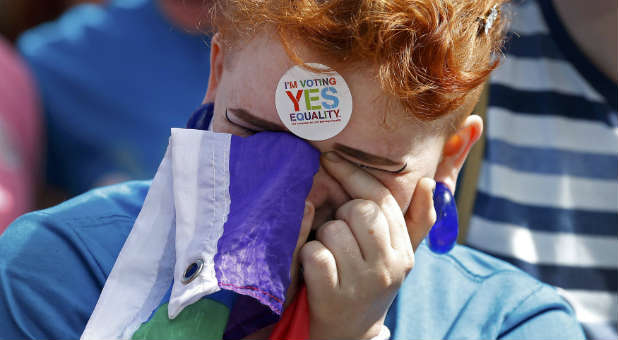How Outspoken Christians May Soon Be Breaking the Law
Voicing criticism of homosexuality “might be breaking the law,” a British values monitor has claimed.
Polly Harrow said people can believe homosexuality is wrong in their heads, but speaking it out loud could be illegal.
Harrow, head of safeguarding and Prevent at Kirklees College in Huddersfield, made the comments on BBC Radio 4’s Today program in a report on the government’s counter-extremism policy. Prevent is a part of the government’s counter-terrorism strategy.
Breaking the Law
Harrow was asked by the BBC’s Sima Kotecha whether a Muslim who believes homosexuality is wrong should be accepted.
She replied: “If that’s what you think and that’s what you believe and you want to hold that in your head, that is your business and your right but bear in mind that if you speak it out loud you might be breaking the law.”
From next week Harrow will be tasked with promoting British values in the college in Huddersfield. She will raise any concerns about students and refer them to police if necessary.
She says the British values strategy is seeking “not just tolerance but acceptance of difference and others.”
Acceptance
The college has received funding for her to carry out the work because of government concerns over pupils being pulled into terrorism.
Harrow’s comments clash with statements from the Security Minister—John Hayes—who said the government’s plans are not about “criminalizing Muslim communities.”
And in May, Home Secretary Theresa May said “of course” people will still be allowed to speak out against same-sex marriage.
Free Speech
The counter-extremism strategy includes plans for Extremism Disruption Orders, which have come under fire over serious concerns about a clampdown on freedom of expression.
Conservative MP David Davis has warned that restricting free speech could further alienate people, while The Daily Telegraph has said the government should be careful not to water down “our most precious value, freedom of expression.”
Earlier this week the government watchdog on terrorism said the “liberties of every citizen are potentially affected” by the plans.
David Anderson QC noted that the current broad definition of extremism could lead to state investigation of the “exercise of core democratic freedoms by large numbers of law-abiding people.”
















































